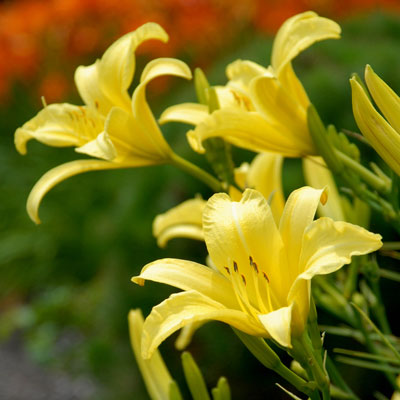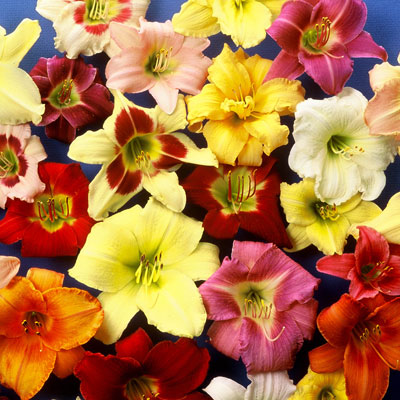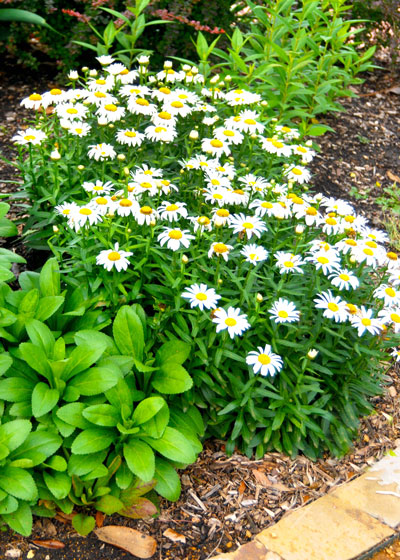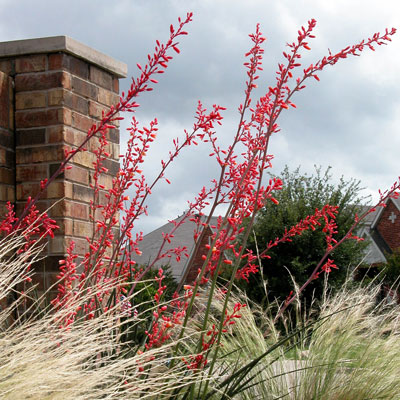Three Great Perennials for May
Perennial gardens require a bit of planning so you’ll have a good sequence of bloom from early spring until late in the fall. May is an unusual month, because the spring perennials, including many types of bulbs, have already finished blooming. And, the hot-weather bloomers really haven’t kicked in yet.
To bridge that tiny time gap, I’ve chosen three plants that are, or soon will be, in full bloom across much of our state. Nurseries have them in stock now, and it’s a great time to plant them.
• Daylilies. My all-time favorite flowers! I mowed yards in trade for plants when I was a kid. Those were quarter-acre lots for one or two plants! (I charge more today.) At my high-water mark, I had more than 400 varieties. That may sound like a lot, but it pales by comparison to the 75,000 named varieties in the daylily world today. They come in all colors, all shapes and all sizes.

Bed of sunny yellow daylilies brightens a commercial landscape.
Nurseries will have them over the next couple of weeks, attend a local show of your daylily society (if you live in a large urban area), or visit an enthusiast’s yard. They often sell plants in the fall to finance their obsession. Just don’t settle for the old-fashioned single and double orange types. Find something more exciting, with different colors, more flowers per stalk (“scape”) and really exotic flower forms.

A gathering of daylilies from the Sperry collection to show the wide diversity in forms, sizes and colors.
• Shasta daisies. You’ll often find these growing and blooming alongside daylilies. These are clumping perennials with mature heights ranging from 12 to 30 inches, depending on the variety. Most are assertive growers, which means that you’ll need to dig and divide them each fall. Their flowers are white with yellow centers, and both single- and double-flowering forms are available.

This bed of a short variety of Shasta daisies shows the plants’ grace and beauty.
• Red yuccas. They aren’t really yuccas (Hesperaloes), but they certainly are red. They’re not especially spiny, so injuries are rare compared to true yuccas and agaves. And, those red spikes continue to bloom from as early as April into mid-summer. Red yuccas also seem to be more resilient to rainy, wet spells in the eastern half of Texas than many other xeriphytic plants that we’ve tried. It should also be noted that a soft lemon-yellow form of red yuccas is sold (but not as showy), as well as improved, richer red cultivars.

For long blooming cycles and durability to Texas conditions, few plants beat red yuccas.
